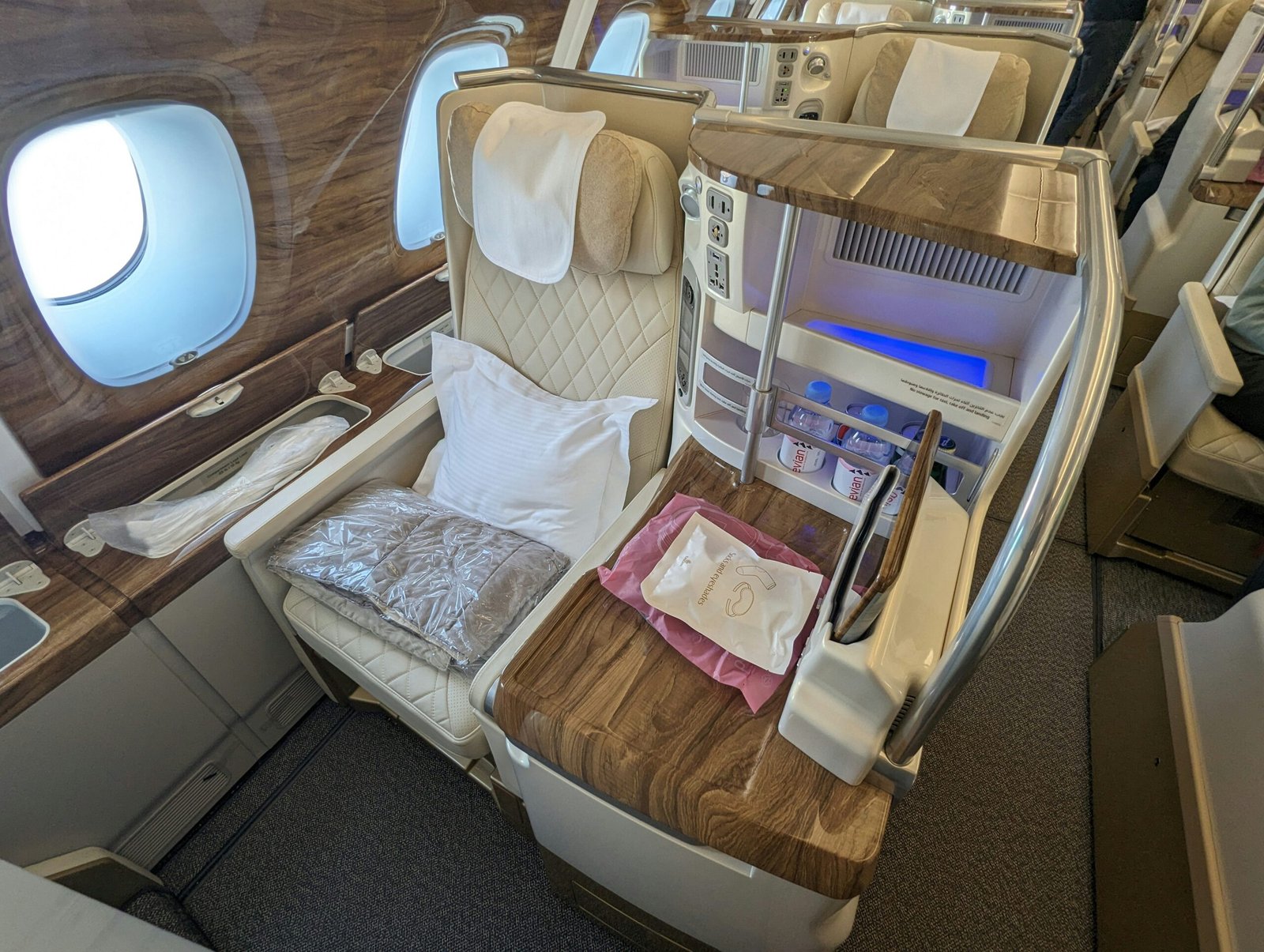Understanding AI-Driven Personalization
AI-driven personalization is an innovative approach that leverages advanced technologies, notably artificial intelligence (AI) and machine learning (ML), to create tailored experiences for travelers. This paradigm shift is particularly significant in the luxury travel sector, where discerning clients expect unparalleled service and bespoke experiences. At its core, AI refers to the capability of a machine to imitate intelligent human behavior, while machine learning, a subset of AI, involves the use of algorithms and statistical models that allow systems to improve their performance on tasks through experience and data analysis.
The significance of personalization in luxury travel cannot be overstated. Travelers today seek experiences that resonate with their individual preferences, ranging from their choice of accommodations to curated itineraries. By utilizing AI and ML, travel companies can analyze vast amounts of customer data, identifying patterns that enable them to anticipate desires before guests even articulate them. This level of insight is achieved through processing inputs such as past traveling behaviors, booking history, social media interactions, and even feedback provided after trips.
These data-driven insights enhance the customer experience by enabling providers to tailor service offerings uniquely for each traveler. For instance, an AI system may determine that a client prefers eco-friendly lodging, thereby suggesting relevant accommodations and excursions that align with these preferences. As travelers increasingly expect personalized packages, AI algorithms empower luxury travel companies to provide customized experiences that foster customer loyalty.
Through predictive analytics and real-time personalization, travel businesses can not only enhance operational efficiency but also enrich the traveler’s experience. Consequently, the implementation of AI-driven personalization in luxury travel represents a profound advancement, setting a new standard for service excellence in the industry.
Enhancing Customer Experience Through Tailored Services
In the evolving landscape of luxury travel, the integration of artificial intelligence (AI) has revolutionized customer experience through tailored services. By leveraging data-driven insights, travel agencies and luxury service providers can create customized itineraries and deliver personalized recommendations, fundamentally transforming the way travelers engage with their journeys. This approach not only enhances the client experience but also fosters a deeper emotional connection between the traveler and the service provider.
AI algorithms analyze vast amounts of data, such as previous travel history, preferences, and even social media interactions, to create bespoke offerings that align with individual desires. For instance, a luxury resort may utilize AI technology to track guest preferences for room types, dining choices, and activity interests. This enables them to provide tailored services like pre-selected amenities or personalized dining experiences that resonate with guests, ensuring a memorable stay. Such attention to detail, powered by AI, elevates the entire travel experience, making it more enjoyable and memorable.
Moreover, by understanding customer behavior through AI analytics, luxury providers can predict trends, anticipate needs, and offer exclusive experiences tailored to specific demographic segments. For example, a luxury travel agency might offer adventure-seeking clients customized tours that include thrilling experiences such as helicopter rides or private yacht charters, thus strengthening customer loyalty by catering to their unique interests and aspirations.
This shift towards AI-driven personalization is not merely a trend but an essential component of enhancing customer satisfaction. When travelers feel understood and valued through tailored services, their likelihood of returning for future experiences significantly increases. Ultimately, this focus on personalization bolsters brand loyalty and helps luxury service providers differentiate themselves in a competitive market.
Case Studies: Successful Implementation of AI in Luxury Travel
The luxury travel sector has witnessed significant transformations through the integration of artificial intelligence (AI) in its services. Notable brands have harnessed AI-driven personalization to enhance guest experience, streamline operations, and elevate customer satisfaction. One prominent example is the renowned hotel chain, Marriott International. This global leader has incorporated AI into its operations to personalize guest experiences. Their system leverages data analytics to provide tailored room settings based on individual preferences, such as lighting, temperature, and even aromatherapy. As a result of these innovations, Marriott has reported an impressive increase in guest satisfaction and loyalty, demonstrating the tangible benefits of AI adoption in hospitality.
Another case study can be found with the airline industry, particularly Delta Air Lines. Delta has implemented AI to create customized travel packages by analyzing customer data and preferences. By using algorithms to predict traveler behavior, they are able to suggest useful upgrades and bespoke offerings that resonate with each traveler. This level of personalization has translated into higher revenues from ancillary products and an enhanced booking experience. Through these AI-driven strategies, Delta has positioned itself as a leader in customer-centric travel services, increasing both its market share and customer base.
A further compelling case is that of concierge services, such as the luxury travel app, Guestline. Guestline employs AI to provide personalized recommendations for dining, leisure, and local attractions tailored to guests’ specific interests. Their natural language processing capabilities allow for real-time engagement, ensuring travelers receive suggestions that genuinely enhance their stay. The deployment of AI has led to increased user engagement and satisfaction, showcasing how innovative technology can transform traditional concierge services into dynamic, personalized experiences.
These case studies exemplify the successful application of AI in the luxury travel sector, offering insights into effective tactics, remarkable outcomes, and valuable lessons learned. As AI continues to evolve, the potential for further advancement in personalized luxury travel experiences remains promising.
Future Trends in AI-Driven Personalization and Luxury Travel
The luxury travel industry is undergoing a significant transformation fueled by advancements in artificial intelligence (AI). As we look toward the future, it is apparent that AI-driven personalization will increasingly define the nuances of travel experiences. One prominent trend is the concept of hyper-personalization, where AI systems will analyze vast amounts of data, including previous travel habits, preferences, and even spontaneous desires, to curate tailor-made itineraries for individual travelers. This deep level of customization will likely include everything from preferred dining options to personalized local experiences, ensuring that each journey resonates with the unique preferences of the traveler.
Moreover, the incorporation of augmented reality (AR) is set to enhance the travel experience dramatically. Imagine an augmented reality application that allows travelers to visualize a hotel room before booking or provides immersive tours of destinations through their devices. These technological advancements will enable luxury travel brands to engage with customers in innovative ways, effectively blending the digital and physical realms and creating memorable client interactions. Additionally, integrating AI with AR could evolve into an interactive concierge service, presenting a seamless flow of information and recommendations to the traveler on-demand.
However, as the luxury travel sector embraces these emerging technologies, it must address data privacy concerns that are increasingly prevalent among consumers. Striking a delicate balance between personalized offerings and respect for personal information will be paramount. Ethical considerations also come into play, as firms must navigate issues of consent, transparency, and security in utilizing travel data. These challenges, if handled thoughtfully, present an opportunity for luxury travel brands to build stronger relationships with customers, ultimately leading to enhanced trust and loyalty.









